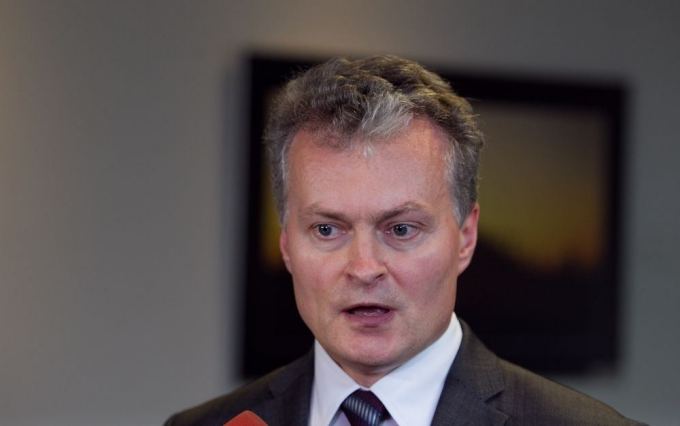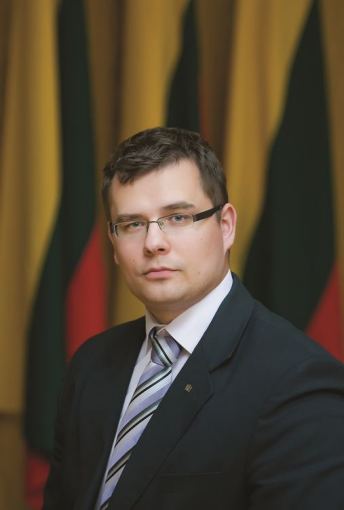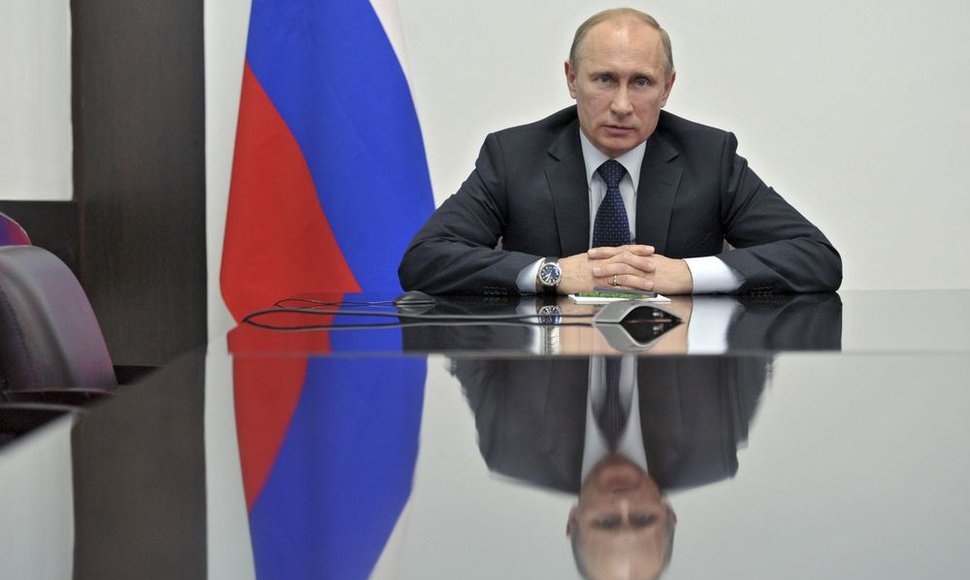Starting last week, Lithuanian carriers have been subjected to excessively thorough inspection at customs checkpoints on the Russian border. Exporters say they face massive losses in both income and market share, while the Lithuanian government has expressed outrage and turned to the European Commission for assistance. According to experts of economy and geopolitics, however, it seems that Lithuanians will have to fight this trade war with Russia on their own.
One of the arguments Lithuania can use in talks with Russia is a pipeline that traverses her territory and supplies gas to Kaliningrad. Experts say it is a sensitive point for Russia, yet playing this card would be very risky.
Hard times for businesses
Gitanas Nausėda, adviser to the president of SEB Bank, tells 15min that Lithuania must first understand what led Russia to impose sanctions on Lithuanian exporters: “The best way is to involve EU institutions and not to try reinventing the wheel. We could hardly fight Russia on our own. It is important to discover the origins of the recent démarche – if these measures have a rational basis, if they are an instance of protectionism that has become increasingly evident in Russia's policies.”
"If Russia can see no other means to solve her economic woes, I'm afraid that hard times await our producers," Nausėda says
As the Russian economy takes a dip, various issues arise, most of them to do with competitiveness of local producers. “If imports from Lithuania are being stopped for this reason, I'm afraid that even the help of EU institutions might be of little help in breaking through the barriers. If Russia can see no other means to solve her economic woes, I'm afraid that hard times await our producers and they must brace themselves for a deterioration in trade conditions,” Nausėda says.
Lithuania is by no means the only victim of Russia's trade wars. Last week, resentful of Moldova's intentions to get closer to the EU, Moscow banned imports of Moldovan wines. In early September, Russia restricted imports of pork and pigs from Belarus. Even though Belarus did report an outbreak of African swine fever last summer, Russia did not respond until several months later, right after Vladislav Baumgertner, head of the Russian company Uralkrayi, got arrested in Belarus.
One fifth of exports
Almost 20 percent of Lithuania's exported produce goes to the Russian market. “The structure of our exports to Russia is diversified. It includes four or five strategically important industries, like foods or furniture. This is our guarantee of faster growth and a bulwark against recession in the EU. But it also gives them an advantage – a card they can play if need be,” according to Nausėda.
He believes Lithuanians should not jump to conclusions and assume that the current measures are Russia's response to negotiations between Vilnius and Gazprom: “If we look at the timing alone, one can suspect that this might be Russia's attempt to secure a better negotiating position. Talks with Gazrpom have entered critical stage and here we have a whole series of restrictions. But there is no direct proof of that.”
Observers agree that Lithuania's position in negotiations with Gazprom over cheaper gas is strong enough. Moreover, Lithuania hosts transit routes connecting Kaliningrad to the rest of Russia. However, Nausėda says, Lithuania should be cautious about taking retaliatory action.
 |
| Gitanas Nausėda |
“I think it is better that such things are never put into practice. The other party can be informed about this course of action as an option. As long as we don't know Russia's motives, engaging in retaliatory actions will only escalate the conflict. It is sometimes better to keep such a card in our hand, just so the other party knows we have it, than to play it straight away and then be left with nothing,” Nausėda believes.
Expecting help is futile
The economist notes that, should Russia keep the measures in place for an extended period of time, Lithuania can face massive losses. Exporting companies will be the first to suffer, but the entire national economy will be affected in the long run, too: “Such behaviour on Russia's part disrupts normal business operations, which incurs losses on firms. This will definitely have an effect on Lithuania. In the past, though, Russia would discontinue similar campaigns – for example, restrictions on exports of livestock were eventually lifted. That is why we should keep our heads cool right now.”
Nausėda thinks that diplomatic notes and official statements by state institutions rarely bring desired effects or even give clear explanations.
"On the one hand, winning over Russian markets brings financial returns, but on the other hand, it exposes the Lithuanian economy to new vulnerabilities," says Kasčiūnas
Political observer Laurynas Kasčiūnas concurs. He explains that Lithuania has run into similar problems with Russia in the past, yet there is no efficient mechanism to deal with them: “Ever since we joined the EU, we have had to decide which problems are better dealt on the European level. For example, our last government used EU structures to raise energy issues. But when it comes to trade wars, the EU cannot offer anything tangible. Trade issues are raised in a wider context during negotiations, but there is no institution tasked with solving issues like restrictions on haulers or import bans.”
Russia hard to figure out
Kasčiūnas, who used to work as an adviser to former Parliament Speaker Irena Degutienė, recalls that there was an offer to create such an institution, but Brussels officials did not seem interested. “In other words, there is now no phone number in Brussels we can call and ask to make Russia act like a civilized country,” he says.
Kasčiūnas does not believe that the latest restrictions have something to do with gas negotiations: “We often perceive Russia as an undivided whole, but within her borders, many interests of different political elites intertwine and they are not necessarily coordinated. I think that, in this case [negotiations with Gazprom], Russia would favour carrots, not sticks.”
 |
| Asmeninio archyvo nuotr./Laurynas Kasčiūnas |
Kasčiūnas is sceptical about using transit pipelines to Kaliningrad as a leverage. “Until they build a Nord Stream line to Kaliningrad – and it is not a very profitable project – we will have this card. But we should think carefully if it is advisable to play it in this context. I do not think it is a good time to move to threats,” he says.
Opportunity to reconsider
According to Kasčiūnas, such trade wars provide an excellent opportunity to reflect on how attractive Russia is to Lithuania's businesses. On the one hand, winning over Russian markets brings financial returns, but on the other hand, it exposes the Lithuanian economy to new vulnerabilities.
“Another question is to what extent the EU is capable of talking to Russia on such issues. It is obvious that mechanisms provided by the World Trade Organization are not enough. Businesspeople often beg to not politicize relations with Russia or Belarus. But when troubles hit, everyone seeks a political solution,” the political observer says.
Several years ago, the EU put together a list of the problems member states had faced in Russia. Restrictions were imposed on meat and dairy imports from Poland, while the Scandinavian countries have had issues in timber trade. “These are not exclusively Lithuania's problems. It is clear that the issue should be put on the European agenda,” Kasčiūnas believes.













